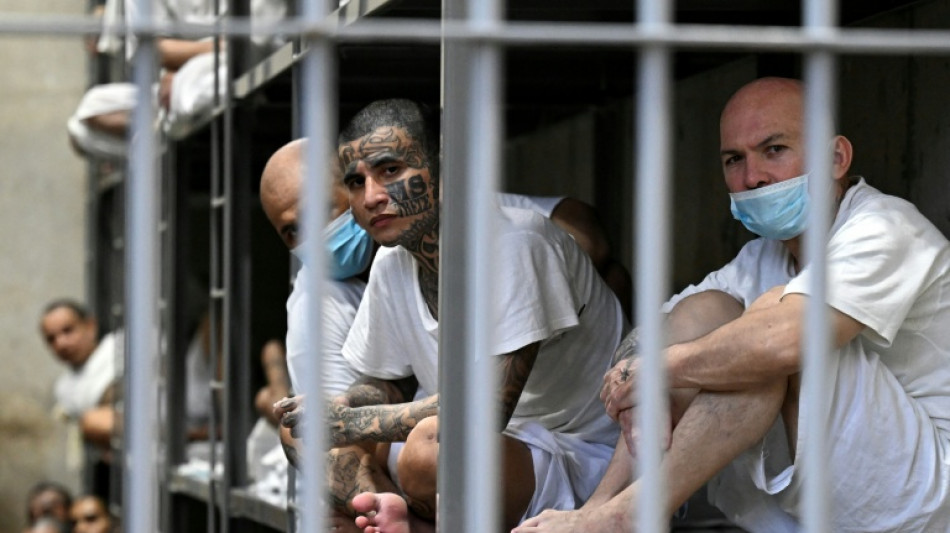
RBGPF
1.0200

The US Supreme Court on Monday paused a lower court order demanding that the Trump administration repatriate a Salvadoran migrant who was wrongfully deported last month.
Kilmar Abrego Garcia, 29, who was living in the eastern state of Maryland, was among more than 200 people sent to a notorious prison in El Salvador last month as part of Republican President Donald Trump's crackdown on undocumented migrants.
US District Judge Paula Xinis ordered Friday that Abrego Garcia be returned to the United States by 11:59 pm on Monday after Justice Department lawyers admitted he was deported due to an "administrative error."
A federal appeals court unanimously upheld the decision with Judge Harvie Wilkinson, an appointee of former Republican president Ronald Reagan, writing: "There is no question that the government screwed up here.
"The facts of this case thus present the potential for a disturbing loophole: namely that the government could whisk individuals to foreign prisons in violation of court orders and then contend... it is no longer their custodian, and there is nothing that can be done," he said.
"It takes no small amount of imagination to understand that this is a path of perfect lawlessness, one that courts cannot condone," Wilkinson said.
The Trump administration appealed to the conservative-dominated Supreme Court, which issued a stay of the district judge's repatriation order pending further consideration of the case.
Chief Justice John Roberts asked attorneys for Abrego Garcia to submit arguments by 5:00 pm (2100 GMT) on Tuesday.
The Trump administration, in asking the Supreme Court to overturn the lower court's order, called it "unprecedented and indefensible" and a "demand that the United States let a member of a foreign terrorist organization into America tonight."
The White House has insisted that Abrego Garcia, who is married to a US citizen, is a member of the Salvadoran gang MS-13 -- though Judge Xinis dismissed this claim as lacking evidence.
- Alien Enemies Act -
Abrego Garcia had been living in the United States under protected legal status since 2019, when a judge ruled he should not be deported because he could be harmed in El Salvador.
The Trump administration conceded again in its Supreme Court application that Abrego Garcia's deportation to El Salvador was an error, but added he could still be removed "anywhere else in the world."
Three planeloads of undocumented migrants were flown from the United States to El Salvador on March 15.
The Trump administration has alleged that most of the deportees belonged to the Venezuelan gang Tren de Aragua, but some attorneys have said their clients were not gang members, had committed no crimes and were targeted largely because of their tattoos.
Trump invoked the little-known 1798 Alien Enemies Act to justify their summary removal.
Another district judge, James Boasberg, has barred the Trump administration from carrying out further deportations under the Alien Enemies Act, which has only been used previously during the War of 1812, World War I and World War II.
The Trump administration has appealed Boasberg's order to the Supreme Court, asking it to allow deportation flights under the Alien Enemies Act to resume.
In its appeal to the Supreme Court, which includes three justices nominated by Trump, acting Solicitor General Sarah Harris said the case is a key test of presidential authority over the courts.
"This case presents fundamental questions about who decides how to conduct sensitive national-security-related operations in this country" -- the president or judges, Harris said. "The Constitution supplies a clear answer: the President."
K.Pokorny--TPP